From the October 1, 1997 Chicago Reader. — J.R.
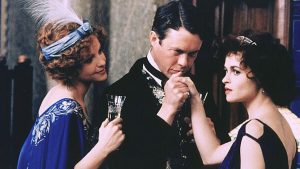
This 1997 British film updates Henry James’s late novel in more ways than one, not only setting the story several years later but also inverting the morality of the original: in keeping with 90s ethics, the gold-digging villains have been transformed into sympathetic heroes. By literary standards this is disgraceful, but for armchair tourists and oglers it’s a nice, glossy spread. Apparently director Iain Softley and screenwriter Hossein Amini decided, contra prudish James, that marrying a dying American heiress for her loot is exactly what a penniless English journalist should do, even when it involves the collusion of his mistress, so heiress Milly Theale, the soul of the novel, barely exists here. This movie is about pretending to catch up with what you didn’t read in college, and oohing and aahing over conspicuous consumption and pretty sites in Venice, including Helena Bonham Carter’s bare ass. With Linus Roache, Alison Elliott, Elizabeth McGovern, Charlotte Rampling, and Michael Gambon. R, 101 min. (JR)

 Read more
Read more
From the Chicago Reader (September 27, 1991). — J.R.
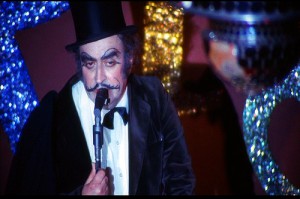
John Cassavetes’s first crime thriller (Gloria was the second), a post-noir masterpiece, failed miserably at the box office when it was first released in 1976; two years later, he released this recut, shorter, and equally good version, which didn’t fare much better. Actually more a personal and deeply felt character study than a routine action picture, it follows the last days of Cosmo Vitelli (Ben Gazzara at his very best), the charismatic owner of an LA strip joint who recklessly gambles his way into such debt with the mob that he has to bump off a Chinese bookie to settle his accounts. In many respects the film serves as a summation of Cassavetes’s view of what life is all about. In fact what makes the tragicomic character of Cosmo so moving is that Cassavetes regarded him as his alter ego — the proud impresario and father figure of a tattered show-biz collective (read Cassavetes’s actors and filmmaking crew) who must compromise his ethics to keep his little family afloat (read Cassavetes’s career as a Hollywood actor). Peter Bogdanovich used Gazzara in a similar part in Saint Jack (1979), but as good as that film is, it doesn’t catch the exquisite warmth and delicacy of feeling of Cassavetes’s doom-ridden comedy-drama. Read more
From the January 29, 1999 Chicago Reader. — J.R.
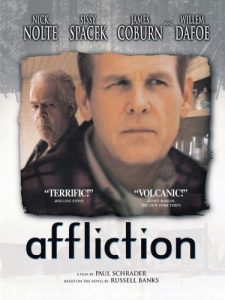
Because most of the acting is authentic and powerful (especially that of Nick Nolte, Sissy Spacek, and Jim True), the source (a Russell Banks novel) is more than respectable, and the subject — an all-around fuckup (Nolte) in a dying New England town becomes even more fucked-up — and winter setting are unrelentingly grim, one has to admire writer-director Paul Schrader for having the guts to make this picture. But I found it more punishing than edifying. A brave effort to stare down the specter of American failure, it gets off on the wrong foot by pretentiously turning the doomed hero into a Christ figure — a traffic cop with arms extended in crucifixion mode — before the story even gets started. Flashbacks come in two subjective styles — grainy and handheld to recount the meanness and violence of the hero’s awful father (James Coburn, a bit out of his depth), black-and-white to reconfigure the recent past. The hero’s brother (Willem Dafoe), daughter (Brigid Tierney), and ex-wife (Mary Beth Hurt) all have their say, but the narcissism of wounded macho gets in the last word, and it’s last year’s groceries. (JR)
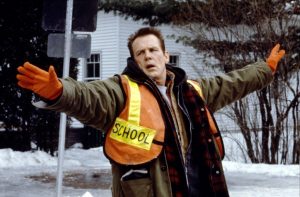 Read more
Read more
From The May 22, 2000 Chicago Reader. — J.R.
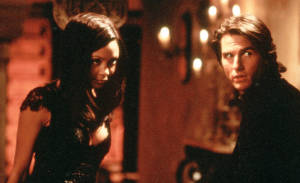
This is obviously a sequel, but whether its true predecessor is Mission: Impossible, Face/Off, or Dr. No is less certain. Like its predecessor, it stars coproducer Tom Cruise, costars Ving Rhames, was written at least partially by prestigious hack Robert Towne (who takes solo credit here), and whimsically glorifies the CIA as a band of efficient sophisticates devoted to inventing new ways for its employees to perform fancy stunts. Like Face/Off, it was directed by John Woo, features a fair amount of sadistic cruelty, and dispenses so many rubber masks to allow the characters to swap identities that no hero or villain winds up carrying any moral weight at all. (How they sometimes manage to imitate one another’s voices is poorly explained, but credibility is so thin throughout that this movie only came into its own when it became available on video and thus truly disposable.) Like Dr. No, it’s a piece of nostalgia for colonialism (the main urban setting is Sydney), Playboy, Cary Grant, high-tech gadgets, and apocalyptic fantasies, and if Cruise makes an unconvincing Bond when compared to Sean Connery, Anthony Hopkins is perfectly cast as Cruise’s chief, and Thandie Newton — as a thief enlisted by the CIA to fuck her former boyfriend, villain Dougray Scott — arguably makes an even better babe than Ursula Andress. Read more
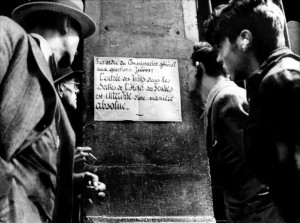
The cinema has produced few more impressive pieces of investigative journalism than this epic 1971 documentary by Marcel Ophuls — 260 minutes long, plus a 15-minute intermission — about the German occupation of France. Ophuls, son of the great Max Ophuls, devotes the first part to the fall of France, the second part to everyday life during the Occupation up through the Liberation. In both parts he focuses on the city of Clermont-Ferrand, not far from Vichy, and the heart of the film consists of relaxed interviews with survivors — French as well as German, resistance fighters as well as collaborationists — and newsreels and propaganda films from the period. The interviews are dated somewhat by the dearth of female subjects (only one out of the 36 principal speakers, and a Petain supporter at that); women are often visible, but apart from the occasional interjection they function mainly as domestic decor. One of the film’s abiding strengths is Ophuls’s refusal to rely on easy ironies or facile divisions between heroes and villains, despite his implicit emphasis throughout on ethical issues. Near the beginning and end of the film he employs the unsettling technique of freezing the frame while the subject’s voice continues, which suggests that even the “frozen” past still has fresh things to tell us. Read more
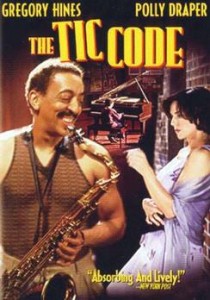
A very special movie, about two jazz musicians with Tourette’s syndrome getting acquainted in Greenwich Village. One’s a white 12-year-old pianist (Christopher George Marquette); the other’s a black tenor saxophone player (Gregory Hines). Polly Draper (Thirtysomething), who does a beautiful job of playing the boy’s mother, wrote the sensitive script, which falters only when it reaches for an overly hasty resolution. She’s the wife of jazz pianist Michael Wolff, who’s in charge of the music here and has a mild case of Tourette’s, so she has a particular reason to be thinking about some of the fascinating questions posed hereabout willful and involuntary improvisation and how they might live together. The moments when the story and music become one are sublime, and more generally this is a very sweet and touching story about various West Village people. The jazz milieu is caught with flavor and feeling. With Desmond Robertson, Bill Nunn, and Tony Shalhoub. 91 min. (JR) Read more
From the Chicago Reader (September 24, 1996). — J.R.
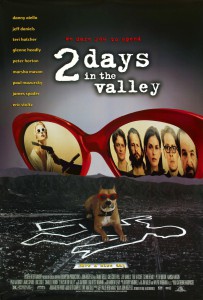
The standard line on this actor-heavy, brain-light concoction by writer-director John Herzfeld (1996) is that it’s Short Cuts meets Pulp Fiction, but it isn’t a tenth as good as either. It does, however, have a good many dog reaction shots, so if you happen to think the other two movies were lacking in those, credit Herzfeld for making up the difference. Crosscutting between various San Fernando Valley miniplots that prove to be interlocking, Herzfeld has a tolerable eye for filling a ‘Scope frame but a tin ear when it comes to creating dialogue; these are all characters we’ve met before, and most even seem bored with themselves. With Danny Aiello, Greg Cruttwell, Jeff Daniels, Teri Hatcher, Glenne Headly, Peter Horton, Marsha Mason, Paul Mazursky, James Spader, Eric Stoltz, and Charlize Theron, plus cameos by Keith Carradine, Louise Fletcher, and Austin Pendleton. (JR)
 Read more
Read more
From the Chicago Reader (October 1, 1992). — J.R.
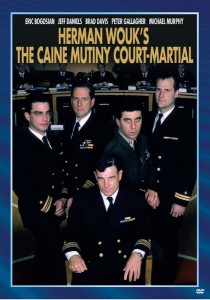
A vast improvement on Edward Dmytryk’s 1954 The Caine Mutiny, directed by Robert Altman for TV in 1988. Both are adaptations by Stanley Roberts of Herman Wouk’s ultraconservative novel, but the Dmytryk essentially honors the promilitary message of the original (navy captains should be obeyed even if they’re insane) while the Altman version ridicules it. One of Altman’s best works of the 80s; with Eric Bogosian, Jeff Daniels, Brad Davis, Peter Gallagher, Michael Murphy, and Kevin J. O’Connor. (JR)
Read more

“I must admit,” the Bear said in an icy voice, “that I have indeed always considered death a tragedy.”
“And you were wrong,” said Paul. “A railway accident is horrible for somebody who was on the train or who had a son there. But in news reports death means exactly the same thing as in the novels of Agatha Christie, who incidentally was the greatest magician of all time, because she knew how to turn murder into amusement, and not just one murder but dozens of murders, hundreds of murders, an assembly line of murders performed for our pleasure in the extermination camp of her novels. Auschwitz is forgotten, but from the crematorium of Agatha’s novels the smoke is forever rising into the sky, and only a very naive person could maintain that it is the smoke of tragedy.”
–Milan Kundera, Immortality (1990) [10/4/09] Read more

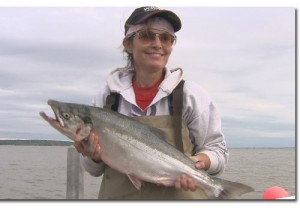
Unless my memory is playing tricks on me, I don’t believe that Truman, Eisenhower, Kennedy, Johnson, Nixon, Ford, or Carter ever used the terms “good guys” or “bad guys” in public speeches, at least not without any trace of irony. Whether this started with Reagan, the first Bush, or the second, these terms have finally become coin of the realm in the campaign speeches of both McCain and Palin, seemingly as acceptable indexes of reality. If Obama and Biden have more recently used these terms unironically as well, out of some misplaced sense of self-defensiveness, then this may rule out the possibility that I’ve been idealistically entertaining, that Obama may be the first full-fledged grownup to have run for President in several decades.
I hasten to add that calling people you want to obliterate “bad guys” is hardly the same thing as calling Hitler and/or Stalin and what they stood for “evil”. The latter is an ethical position of some kind; the former is a reference to games played (and concepts played with) by children. And not being able to tell the difference between the two — which may bear some relation to not being able to tell the difference between Mahmoud Ahmadinejad and the mullahs, or between any of the leaders deemed as “bad guys” and any of the civilians who would likely be the first to be hit by any bombs or missiles — is clearly related to a child’s desire to make contemporary warfare understandable in the same simplistic terms as Star Wars, thus helping to account for CNN logos and James Earl Jones intoning station identification. Read more
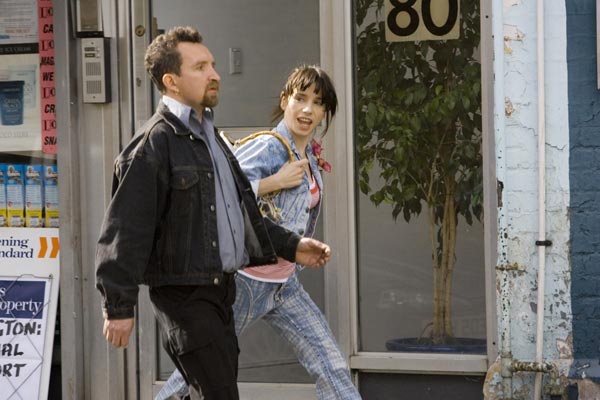
Could Mike Leigh’s latest feature really be his “mellowest work yet,” as Alissa Simon maintained in her Variety review when it premiered in Berlin back in February? I guess it could seem that way if you focus on Sally Hawkins’ winning performance and factor out all the creepy characters in her orbit–including her nearly psychotic driving instructor (the terrifying Eddie Marsan, seen with her above), her pregnant sister, her flamenco dance teacher, and an incoherent tramp she encounters at one point (among others), most of whom are viewed as volatile monsters who are apt to explode at any moment. But for me this is probably Leigh’s scariest and bleakest movie since Naked, no less remote from any ordinary kind of realism (despite Hawkins’ frequent impression to the contrary) and packed with all sorts of disquiet, anxiety, and trouble. [10/5/08]

Read more
Some wisdom from the last Depression, courtesy of Kenneth Fearing (1902-1961), taken from his 1935 Poems. (My apologies for not being able to transcribe the spacing more accurately.)
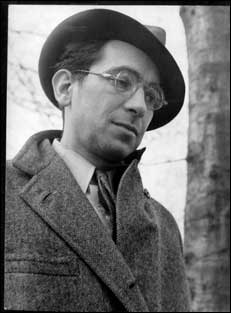
Dirge
1-2-3 was the number he played but today the number came 3-2-1;
bought his Carbide at 30 and it went to 29; had the favorite at Bowie but the track was slow —-
O, executive type, would you like to drive a floating power, knee-action, silk- upholstered six? Wed a Hollywood star? Shoot the course in 58? Draw to the ace, king, jack?
O, fellow with a will who won’t take no, watch out for three cigarettes on the same, single match; O, democratic voter born in August under Mars, beware of liquidated rails—-
Denoument to denouement, he took a personal pride in the certain, certain way he lived his own, private life,
but nevertheless, they shut off his gas; nevertheless, the bank foreclosed; nevertheless, the landlord called; nevertheless the radio broke,
And twelve o’clock arrived just once too often,
just the same he wore one gray tweed suit, bought one straw hat, drank one straight Scotch, walked one short step, took one long look, drew one deep breath,
just one too many,
And wow he died as wow he lived,
going whop to the office and blooie home to sleep and biff got married and bam had children and oof got fired,
zowie did he live and zowie did he die,
With who the hell are you at the corner of his casket, and where the hell we going on the right-hand silver knob, and who the hell cares walking second from the end with an American Beauty wreath from why the hell not,
Very much missed by the circulation staff of the New York Evening Post; deeply, deeply mourned by the B.M.T., Read more

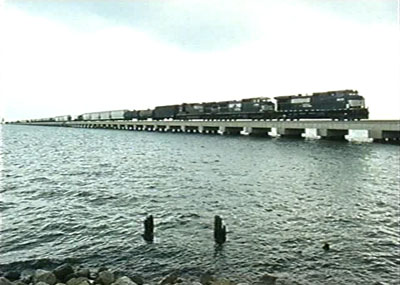
Here is a link to the formidable cast list of James Benning’s RR, announced as his last work to be shot in 16-millimeter and seen last night at the Vancouver International Film Festival. I hope to follow with some more details about this beautiful epic soon. [10/3/08]
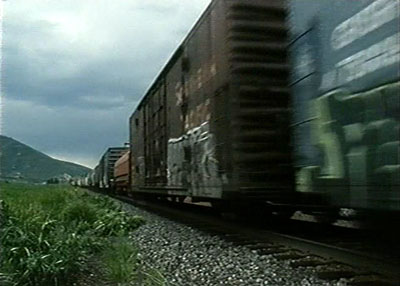 Read more
Read more
From the February 24, 2oo6 Chicago Reader. — J.R.
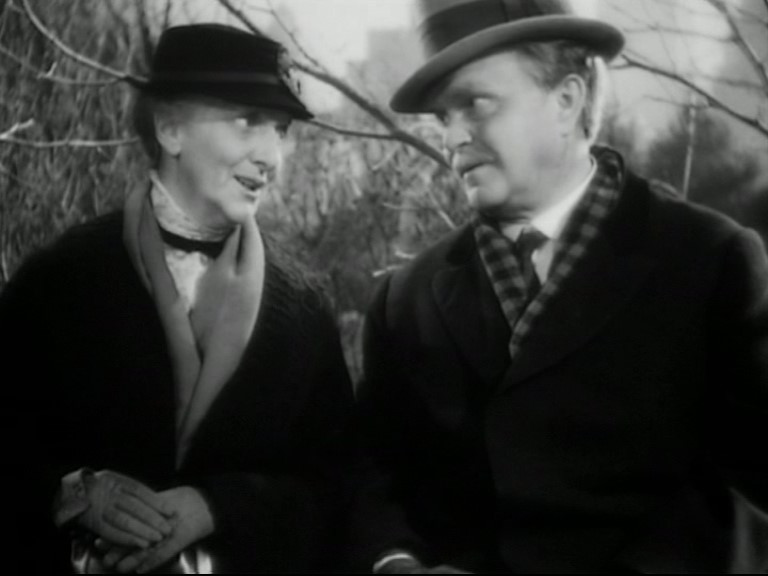
With the possible exception of Yasujiro Ozu’s Tokyo Story, this 1937 drama by Leo McCarey is the greatest movie ever made about the plight of the elderly. (It flopped at the box office, but when McCarey accepted an Oscar for The Awful Truth, released the same year, he rightly pointed out that he was getting it for the wrong picture.) Victor Moore and Beulah Bondi play a devoted old couple who find they can’t stay together because of financial difficulties; their interactions with their grown children are only part of what makes this movie so subtle and well observed. Adapted by Vina Delmar from Josephine Lawrence’s novel Years Are So Long, it’s a profoundly moving love story and a devastating portrait of how society works, and you’re likely to be deeply marked by it. Hollywood movies don’t get much better than this. With Thomas Mitchell, Fay Bainter, and Porter Hall. 91 min. 16mm. Also on the program: McCarey’s silent comedy short Be Your Age (1926), with Charley Chase. Sat 2/25, 8 PM, LaSalle Bank Cinema.
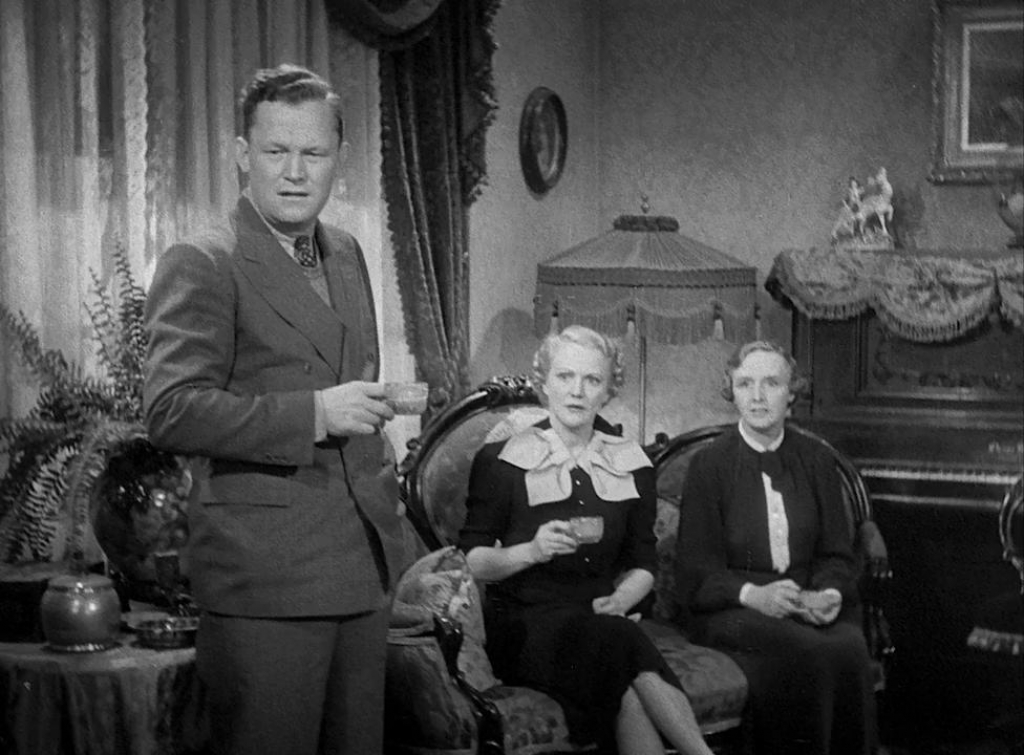 Read more
Read more
From the Chicago Reader (September 1, 2000). — J.R.
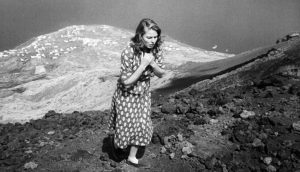
Roberto Rossellini’s first filmic encounter with Ingrid Bergman, made in the wilds in 1949 around the same time the neorealist director and the Hollywood star were being denounced in the U.S. Senate for their adulterous romance. Widely regarded as a masterpiece today, the film was so badly mutilated by Howard Hughes’s RKO (which added offscreen narration, reshuffled some sequences, and deleted others) that Rossellini sued the studio (and lost). The Italian version, which Rossellini approved, has come out on video, and this rarely screened English-language version is very close to it. A Lithuanian-born Czech refugee living in an internment camp (Bergman) marries an Italian fisherman (Mario Vitale) in order to escape, but she winds up on a bare, impoverished island with an active volcano, where most of the locals regard her with hostility. The film is most modern and remarkable when the camera is alone with Bergman, though Rossellini wisely shows neither the wife nor the husband with full sympathy. Eschewing psychology, the film remains a kind of ambiguous pieta whose religious ending is as controversial as that of Rossellini and Bergman’s subsequent Voyage to Italy (though its metaphoric and rhetorical power make it easier to take). Read more
























